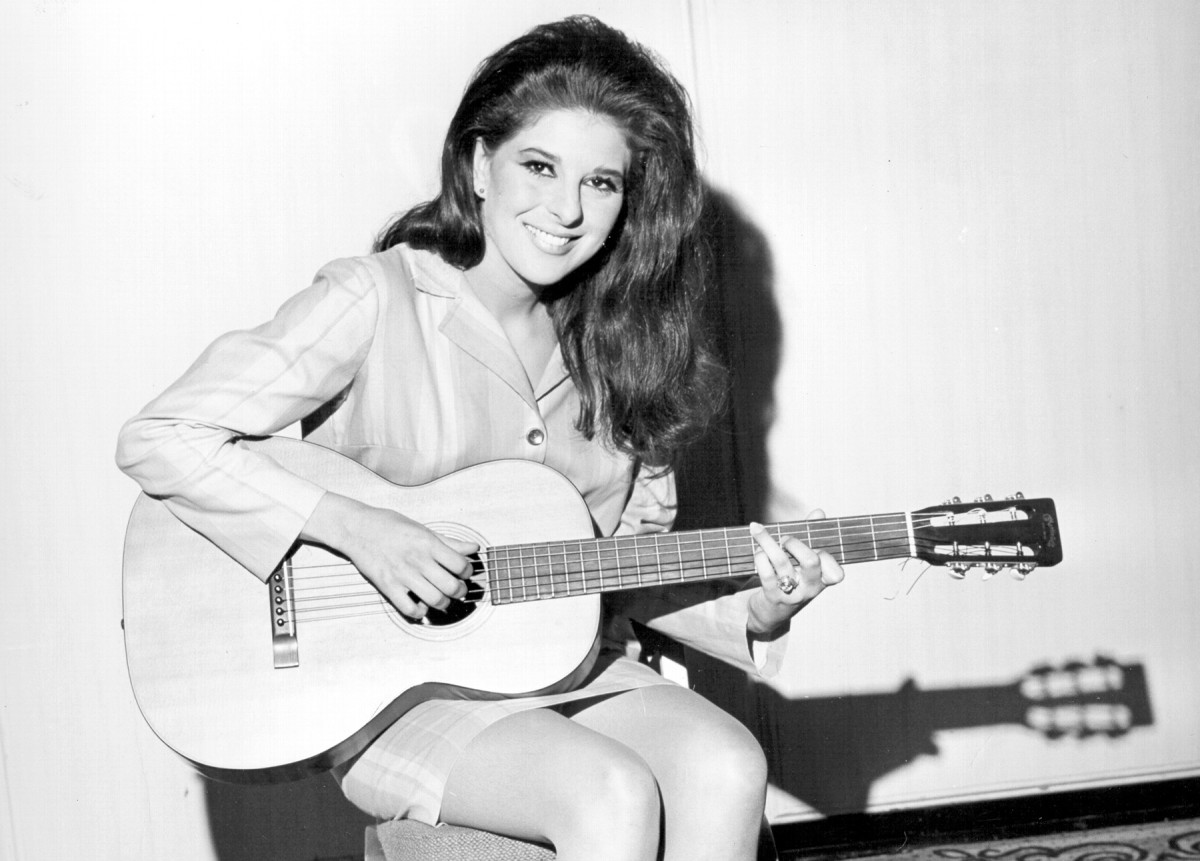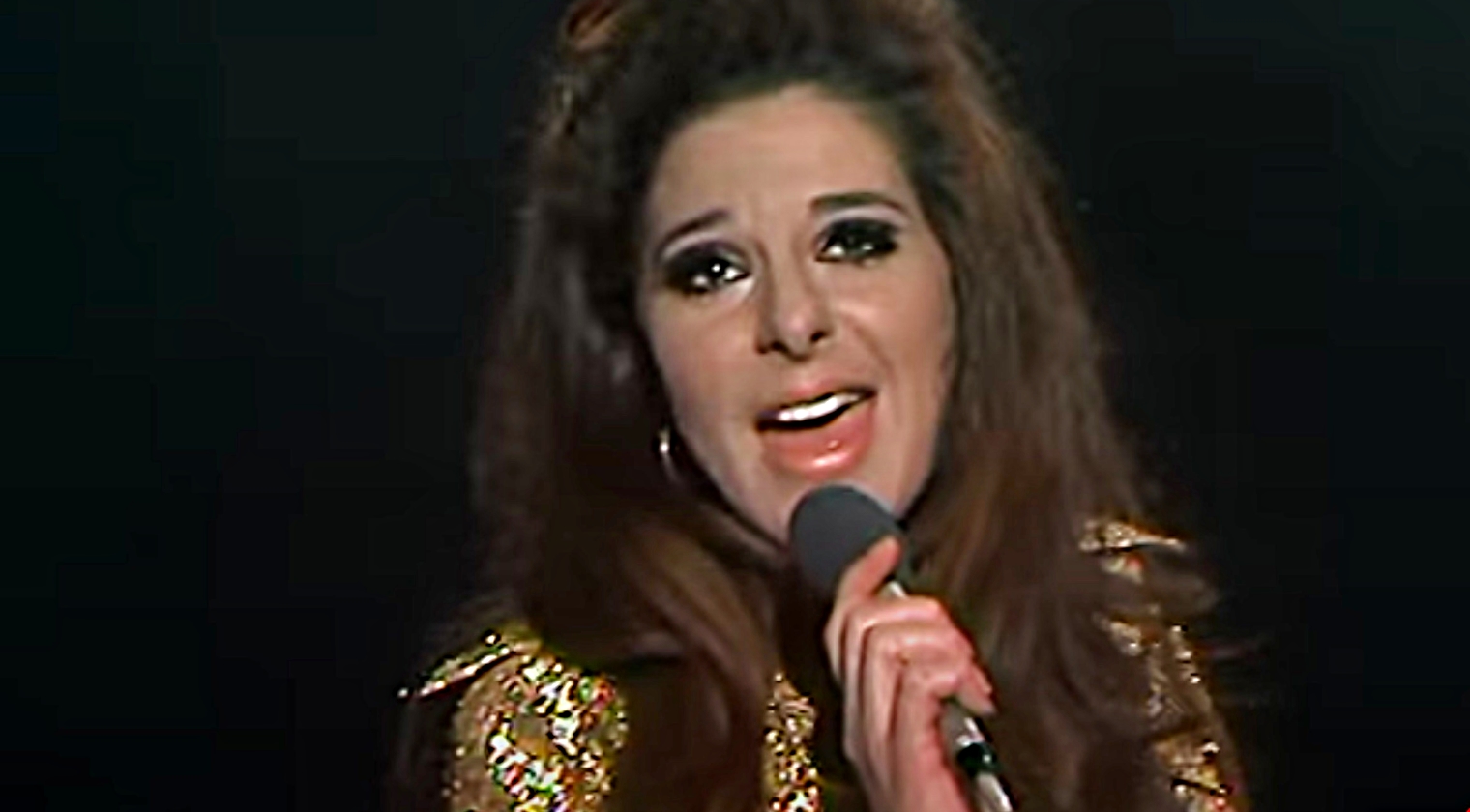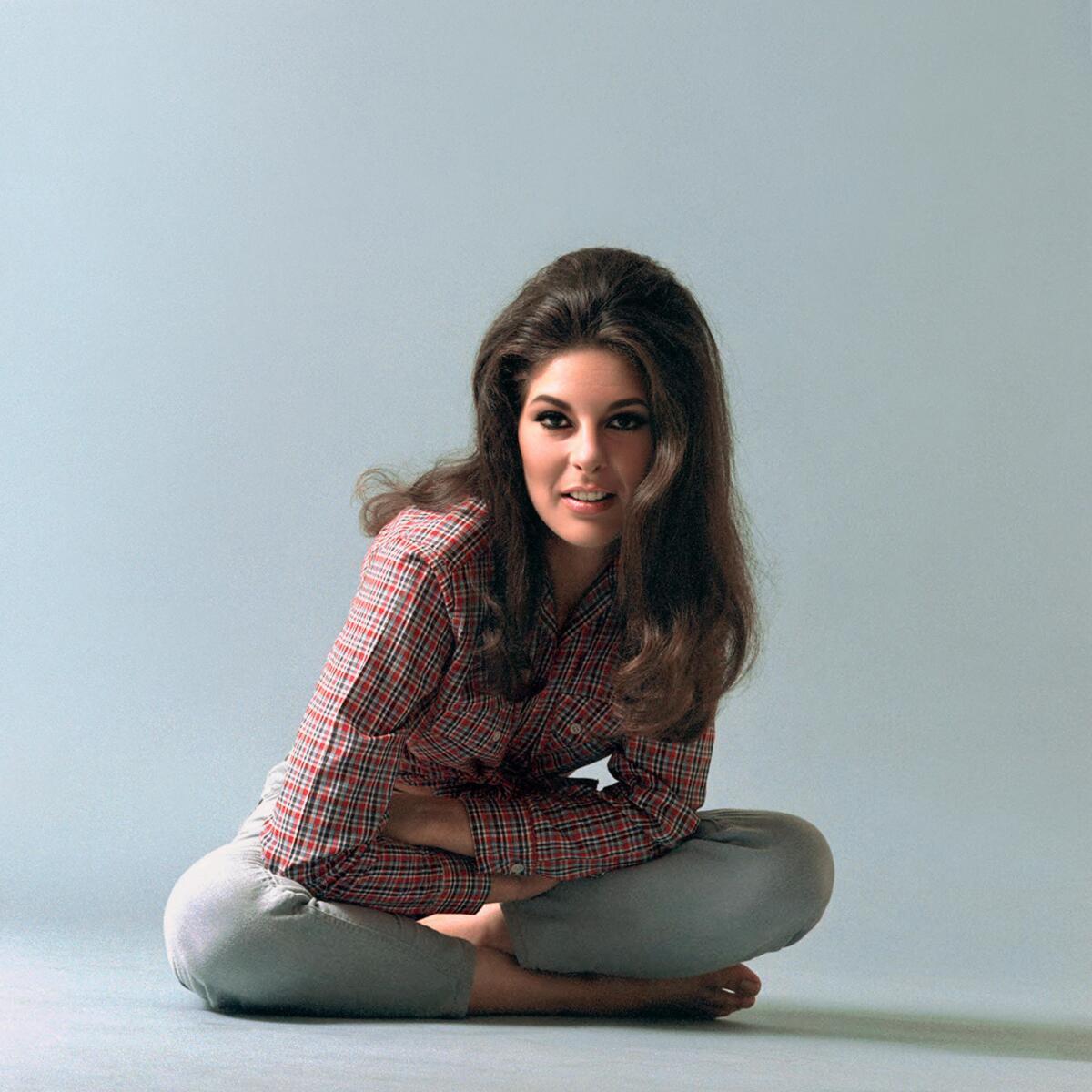Bobbie Gentry: Unraveling The Enigma Of A Country Music Pioneer
Bobbie Gentry, a name synonymous with mystery and groundbreaking artistry, continues to captivate audiences decades after her rise to fame. Her enigmatic persona and revolutionary approach to music cemented her status as a true pioneer in an industry often dominated by male voices. From her humble beginnings in Mississippi to her unprecedented success with "Ode to Billie Joe," Bobbie Gentry carved out a unique space, not just as a singer, but as a composer and producer who defied conventions.
This article delves into her remarkable journey, exploring her musical achievements, the enduring legacy of her hit song, and the intriguing questions that surround her life away from the spotlight. We will learn about her musical achievements, the inspiration behind her hit, and the people who worked with her, uncovering the layers of a career that was as impactful as it was brief, leaving behind a legacy that resonates to this day.
Bobbie Gentry: A Brief Biography
Born Roberta Lee Streeter on July 27, 1942, in Chickasaw County, Mississippi, Bobbie Gentry emerged as one of the most distinctive voices in American music. Her early life was rooted in the Southern landscape that would later become the rich tapestry for her most famous narratives. She lived with her parents on a farm near Greenwood until she was thirteen, immersing herself in the rhythms and stories of rural Mississippi. This formative period undoubtedly shaped her unique storytelling ability and her deep connection to the South, which she would later express so vividly in her music.
At age 13, Gentry moved to California to live with her mother, a significant shift that exposed her to new influences and opportunities. Her interest in and aptitude for music were evident from a young age, leading her to hone her skills as a singer, songwriter, and musician. This blend of Southern roots and West Coast exposure would contribute to the eclectic and genre-defying sound that would define her career. Bobbie Gentry was not just a performer; she was a true artist who meticulously crafted her sound and stories, laying the groundwork for a career that would challenge industry norms.
Personal Data of Bobbie Gentry
| Attribute | Detail |
|---|---|
| Full Name | Roberta Lee Streeter |
| Pseudonym | Bobbie Gentry |
| Date of Birth | July 27, 1942 |
| Place of Birth | Chickasaw County, Mississippi, USA |
| Nationality | American |
| Occupation | Singer, Songwriter, Producer |
| Genre | Country, Pop, Folk, R&B |
| Active Years | 1967–1981 |
| Notable Hit | "Ode to Billie Joe" (1967) |
| Awards | Grammy Awards for Best New Artist, Best Female Pop Vocal Performance (1968) |
The Genesis of a Star: Bobbie Gentry's Early Career
Before she became a household name, Bobbie Gentry spent years refining her craft and finding her artistic voice. Her journey from the rural South to the vibrant music scene of California was instrumental in shaping her unique perspective. While living in Palm Springs, California, from the age of thirteen, she continued to develop her musical talents, learning to play various instruments and writing songs that reflected her observations and experiences. This period was crucial for her growth as a songwriter, as she began to translate her Southern heritage into compelling narratives.
Gentry's early efforts were marked by a determination to control her artistic output, a trait that would set her apart in the male-dominated music industry. She was one of the first female artists to compose and produce her own material, a truly revolutionary act at the time. This hands-on approach allowed her to maintain an authentic voice, ensuring that her songs were not just sung but truly embodied her vision. Her dedication to her craft and her unwavering artistic integrity laid the foundation for the monumental success that was just around the corner, proving that Bobbie Gentry was a force to be reckoned with even before her breakthrough hit.
"Ode to Billie Joe": The Song That Changed Everything
July of 1967 marked a pivotal moment in music history when Capitol Records released “Ode to Billie Joe,” a spooky wisp of a song by an unknown artist named Bobbie Gentry. What started as a B-side, a mere afterthought, quickly captivated the entire country. The song, with its haunting melody and enigmatic lyrics, became a monster hit in 1967, catapulting Bobbie Gentry into superstardom almost overnight. Its success was unprecedented, defying industry wisdom that said “Ode” was too dark, too long, and too unconventional for mainstream radio. Yet, its raw authenticity and the compelling mystery at its heart resonated deeply with listeners, making it a cross-genre phenomenon that topped both pop and country charts.
The mystery created by Bobbie Gentry cast a spell over the entire country, and 45 years later people are still discussing what Billie Joe McAllister and his girlfriend threw off the Tallahatchie Bridge. This unanswered question became the song's enduring hook, drawing listeners into a narrative that felt both deeply personal and universally intriguing. The song's success wasn't just about its chart performance; it was about its cultural impact, sparking countless debates and interpretations. Bobbie Gentry sang of a Mississippi family sitting around the dinner table, discussing the tragic news of Billie Joe, painting a vivid picture of Southern life and unspoken tensions that rivaled the works of literary giants like William Faulkner.
Inspiration Behind the Hit
The inspiration behind "Ode to Billie Joe" remains a subject of fascination, though Bobbie Gentry herself often downplayed any direct autobiographical connection, preferring the song to be a study in human nature and unspoken secrets. The narrative, set against the backdrop of a mundane family dinner, subtly reveals the devastating impact of a local tragedy. Gentry's ability to create such a compelling story, rich with Southern gothic undertones and psychological depth, showcased her extraordinary talent as a storyteller. The song wasn't just about a boy jumping off a bridge; it was about the way people react to tragedy, the things left unsaid, and the profound weight of everyday life in a close-knit community. It's a testament to her songwriting prowess that a simple country tale could evoke such profound and lasting intrigue, cementing its place as a classic.
Industry Skepticism and Unprecedented Success
Despite its eventual massive success, "Ode to Billie Joe" initially faced significant skepticism from the music industry. Many executives at Capitol Records believed the song was too niche, too long (over four minutes, which was unusual for radio at the time), and too morbid for a mainstream hit. The dark subject matter and the lack of a clear resolution to the central mystery were seen as commercial liabilities. However, the song's undeniable power and Bobbie Gentry's captivating delivery quickly proved the naysayers wrong. Radio stations began playing it, and listener demand surged, leading to its rapid ascent on the charts. Its success demonstrated that audiences were hungry for something deeper and more unconventional than typical pop fare, proving that Bobbie Gentry was a powerhouse in the industry as well, capable of breaking molds and setting new trends with her unique artistic vision.
A Trailblazing Artist: Bobbie Gentry's Impact on Music
Bobbie Gentry was far more than a one-hit wonder; she was a true trailblazer whose influence reverberated throughout the music industry. Roberta Lee Streeter, who used the pseudonym “Bobbie Gentry,” was one of the first female country artists to compose and produce her material. This was a radical departure from the norm, where female artists were often relegated to singing songs written and produced by men. Gentry's insistence on artistic control not only showcased her immense talent but also paved the way for future generations of female musicians to take charge of their careers. She demonstrated that women could be not just performers, but also creative forces behind the scenes, shaping the sound and message of their music from conception to final product.
Her pioneering spirit was quickly recognized. She won Grammy Awards for Best New Artist and Best Female Pop Vocal Performance in 1968, solidifying her status as a critical darling and a commercial success. These accolades were a testament to her unique sound, which seamlessly blended country, pop, folk, and R&B elements, creating a genre-defying style that was entirely her own. Bobbie Gentry's ability to craft intricate narratives, coupled with her distinctive vocal delivery, made her a singular figure in the music landscape. She was a powerhouse in the industry, not just for her hit song, but for her comprehensive artistic vision and her courage to challenge established norms.
Beyond "Ode": Her Discography and Albums
While "Ode to Billie Joe" remains her most iconic work, Bobbie Gentry went on to release six albums under her own name, showcasing her diverse talents and evolving artistry. Her discography includes critically acclaimed works like "The Delta Sweete" (1968), which delved deeper into the Southern gothic themes hinted at in her debut, and "Fancy" (1970), which featured another strong narrative song that became a hit for Reba McEntire years later. Each album offered a glimpse into her songwriting prowess, her ability to craft vivid characters, and her experimental approach to arrangements, often incorporating lush orchestrations with raw, rootsy elements. Exploring Bobbie Gentry's discography, including top tracks, albums, and reviews, reveals a consistent dedication to quality and originality. She was a prolific artist who continuously pushed creative boundaries, proving that her artistry extended far beyond a single hit, making her a truly significant figure in American music history.
Bobbie Gentry on Screen: Television and Performances
Beyond her recording career, Bobbie Gentry was also a captivating presence on screen, further cementing her status as a multifaceted entertainer. Her unique charisma and undeniable talent made her a natural fit for television, a medium that was rapidly expanding its reach in the late 1960s and early 1970s. She hosted her own TV show, "The Bobbie Gentry Happiness Hour," which aired in the summer of 1974. This variety show allowed her to showcase not only her musical abilities but also her charm, wit, and stage presence, performing alongside various guest stars. The show provided a platform for her to connect with audiences in a new way, demonstrating her versatility beyond just singing her hits.
Her performances, both on her show and as a guest on other popular programs, were always meticulously crafted and highly engaging. Bobbie Gentry captivated the entire country in 1967 with a Southern tale to rival William Faulkner, and she continued to enthrall audiences with her live renditions and television appearances. She was known for her elaborate stage costumes and innovative choreography, transforming her concerts into theatrical experiences. Her presence on television further solidified her celebrity status, allowing her to reach an even broader audience and showcase the depth of her artistic vision. Find out about her awards, marriages, TV show, and more on IMDb, which details her significant contributions to both music and television during her active career.
The Enigmatic Retreat: Bobbie Gentry's Seclusion
One of the most intriguing aspects of Bobbie Gentry's story is her decision to step away from the limelight. She retired from music in 1981 and has been living in seclusion for over 40 years, a choice that has only deepened the mystery surrounding her. After a highly successful career that saw her achieve international fame, win multiple Grammy Awards, and host her own television show, Gentry quietly withdrew from public life. This abrupt departure left fans and the industry alike wondering about her reasons and her whereabouts. Unlike many artists who fade away gradually, Bobbie Gentry made a definitive exit, choosing a life of privacy over continued celebrity.
Her decision to live a secluded life in Los Angeles for decades has fueled countless rumors and speculation. While some artists might maintain a public profile even after retirement, Gentry has maintained an almost complete silence, rarely making public appearances or granting interviews. This profound privacy has only added to her legendary status, transforming her from a country singer/songwriter into an almost mythical figure. For over 40 years, she has successfully guarded her personal life, a testament to her desire for normalcy and peace away from the relentless glare of the spotlight. Bobbie Gentry is a country legend who chose to leave her career behind, a decision that continues to fascinate and inspire discussion among her devoted fanbase.
The Mystery of Her Disappearance and Residence
The mystery behind Bobbie Gentry's disappearance from public life is as captivating as the unsolved riddle of "Ode to Billie Joe." For decades, fans and journalists have speculated about her possible residence and the details of her private life. While it is widely understood that she has been living a secluded life in Los Angeles, confirmed sightings or concrete details about her daily existence are rare. This extreme privacy has led to various theories and a sustained public interest in her well-being. Learn about her possible residence, her connection to Reba McEntire (who famously covered Gentry's song "Fancy"), and the mystery behind her disappearance, all of which contribute to the enduring allure of Bobbie Gentry. Her decision to live a life away from the public eye has, paradoxically, kept her legend alive, ensuring that her name continues to be whispered and her story discussed, cementing her place as one of music's most enigmatic figures.
Bobbie Gentry's Enduring Legacy and Influence
Despite her retreat from the public eye, Bobbie Gentry's influence on music and culture remains profound and undeniable. Her 1967 song "Ode to Billie Joe" was a massive pop and country hit and has been covered by many different artists, testifying to its timeless appeal and narrative power. The song's unique blend of folk, country, and pop, coupled with its sophisticated storytelling, paved the way for other artists to explore more complex themes in popular music. She was a country legend who chose to leave her career behind, but her impact continues to resonate, particularly among female artists who have been inspired by her pioneering role as a composer and producer of her own material.
The mystery created by Bobbie Gentry cast a spell over the entire country, and decades later, people are still discussing what Billie Joe McAllister and his girlfriend threw off the Tallahatchie Bridge. This enduring fascination speaks volumes about the power of her artistry and the indelible mark she left on the cultural landscape. Her influence can be seen in artists who embrace narrative songwriting, those who blend genres, and certainly in female artists who demand creative control over their work. In the swelling song full of sorrow and strings, she lays it all out, singing, “I spend my days thinkin' up new ways / to do the same old thing,” and “I spend my nights in the bright spotlights / wishin' I could let the people know / you can't win or lose unless you play the game.” These lyrics, from a later song, offer a glimpse into the pressures of fame and perhaps her eventual desire for a life less scrutinized. Bobbie Gentry's legacy is not just in her hits, but in the artistic freedom and enigmatic allure she embodied, continuing to inspire and intrigue new generations of listeners and musicians alike. Learn all about Bobbie Gentry on AllMusic, which provides a comprehensive overview of her contributions to music.
Conclusion: The Unforgettable Spell of Bobbie Gentry
Bobbie Gentry's journey from a Mississippi farm girl to a Grammy-winning artist and then to a reclusive legend is a testament to her unique talent and enigmatic spirit. She broke barriers as one of the first female artists to compose and produce her own material, leaving an indelible mark on the music industry. Her masterpiece, "Ode to Billie Joe," not only became a monumental hit but also sparked a cultural phenomenon, its haunting narrative continuing to captivate audiences and inspire endless speculation decades later.
Though she retired from the spotlight in 1981, choosing a life of profound privacy, Bobbie Gentry's legacy endures. She remains a powerful symbol of artistic integrity and a pioneer who dared to defy conventions. Her music, rich with evocative storytelling and innovative arrangements, continues to be discovered and celebrated by new generations, ensuring that the spell of Bobbie Gentry will never truly be broken. What are your favorite Bobbie Gentry songs or memories? Share them in the comments below and let's keep the conversation about this extraordinary artist alive!

Still Missing Bobbie - HubPages

Almost 40 Years After Vanishing, Bobbie Gentry To Be Placed In

Bobbie Gentry's feet